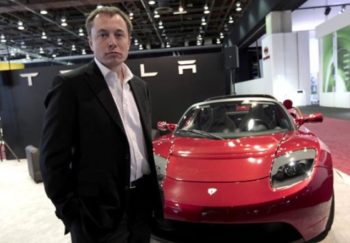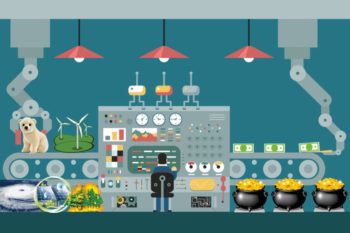
Still, as negotiators work towards a deal that would alleviate tensions and reduce tariffs amongst the countries, the trade war persists.
And that fact could spell disaster for Elon Musk’s Tesla — a company banking hard on generous financial assistance from both the United States and Chinese governments.
Last year, Musk faced bad news: the United States would be scaling back its subsidies for electric vehicles, known as EV credits.
Without the additional support from the federal government, Tesla had to search for a new revenue stream — and the company found it within China’s regime.
Musk, to preserve his business interests, has bet the farm on garnering tax incentives from the Chinese government. And given the ongoing trade war, it’s a risk that likely won’t work out in his favor.
Succeeding in penetrating the Chinese market as an American company is one of the major challenges that Elon Musk’s Tesla-led company has taken up in order to capture more and more cake shares in the electrical sector.
While it must be said that the Beijing administration’s market remains the largest in the world, Tesla’s success is a tenuous proposition at best.
The looming continuation of the trade war could be fatal for the company, demonstrating once again the pitfalls of an overreliance on government subsidies.
For Musk, a crash in the Chinese automobile market could make the choice to invest in China a fatal one.
Last year, the Chinese automotive market suffered its first contraction in more than 20 years due to a decline in domestic demand and the trade dispute with the United States.
New car sales fell by 14.6% in China in April compared to the same period in 2018, the tenth consecutive month of contraction in the world’s largest automotive market.
In China, sales of electric vehicles fell by 5% in July and 11% in August in one year, raising concerns that even in a high-tech China, electric vehicles (EVs) could be difficult to sell in the coming years.
The success of electric vehicles in China is linked in particular to the massive subsidies granted by the government to manufacturers and consumers.
They are estimated at $60 billion between 2009 and 2017. Some have even talked about an electric vehicle bubble in China.
But Beijing has changed its strategy, and subsidies will disappear by the end of the year. They have already fallen significantly since the beginning of July.
This is reflected in the numbers: Despite recently announcing the fourth profitable quarter in the company’s history, Tesla is far from achieving its goals of making profitability a regular event, reporting losses in Q1 of 2019, and declining shares.
Q2 isn’t looking much better, with a revenue of $6.35 billion versus the $6.41 billion expected.
The ongoing trade war threatens to expose Musk’s subsidy-dependent business model for its true fragility. After all, the effectiveness of government subsidies wholly depends upon the external economic forces surrounding them.
The benefits of a particular foreign benefit can be rendered useless by the imposition of a single tariff. For Tesla — in the midst of a trade war between two competing subsidy providers — this is a massive problem.
Unfortunately for Musk’s backers, the businessman tends to place his companies in extremely precarious situations and dangerously dependent on government support.
SpaceX, for instance, his very own space exploration endeavor, is largely reliant on government contracts. A mindboggling 90 percent of its financial support comes from the government.
And yet, even with that level of fiscal compensation, it’s government-backed projects like the Crew Dragon continue to face delays, explosions, and logistical setbacks.
If the federal government ultimately decides that contracting SpaceX is no longer in its best interest — certainly a reasonable proposition — there is simply no way the company could remain viable.
Tesla Motors Inc., SolarCity Corp., and SpaceX — all companies owned by Musk — have benefited from an estimated $4.9 billion in government support, but history shows that this support can only be effective for so long.
And according to the data, it is becoming increasingly clear that Musk’s subsidy-driven businesses, Tesla, in particular, may be skating on thinning ice.
Without the anticipation of a viable market in China, and with numerous countries giving up on EV tax credits, this could become yet another failure by Musk to make a business profitable in a free market.
In the long list of enterprises that are being propped up by government support, Elon Musk’s projects seem to lead the charge. But the ongoing trade war has effectively exposed the flaw in Musk’s business model.
During times of international strife, an overreliance on government subsidies simply is not a viable business strategy. Now, it looks like Musk may be paying the price.
Read more at American Thinker

















Never like this overrated moron.Thanks again, genius Hussein O, Solyndra, now Tesla….
This sucker has to be in jail for the fraud. But he donated enough money to democrats to be safe, unfortunately.
Obvious question…. If China is burning more coal than anyone else on Earth, why are they subsidizing Tesla’s cars? Maybe because China doesn’t have oil? No oil, no gasoline. So Teslas, in China, are coal-fired.
Couldn’t happen to a more deserving guy. And all those who foolishly purchased his overpriced cars.